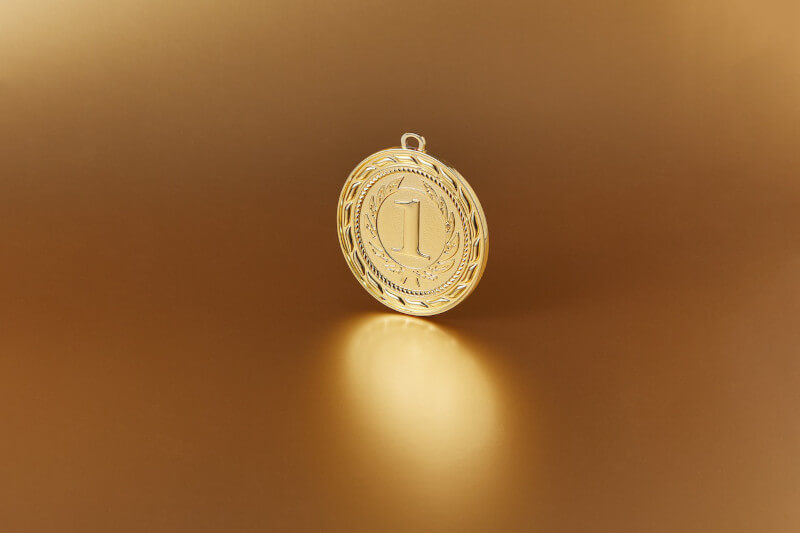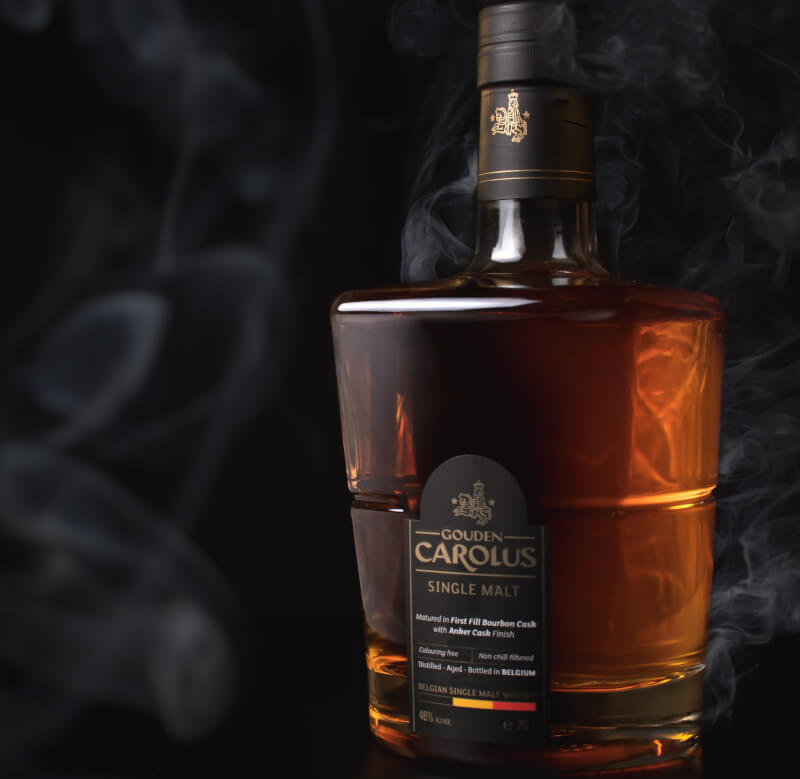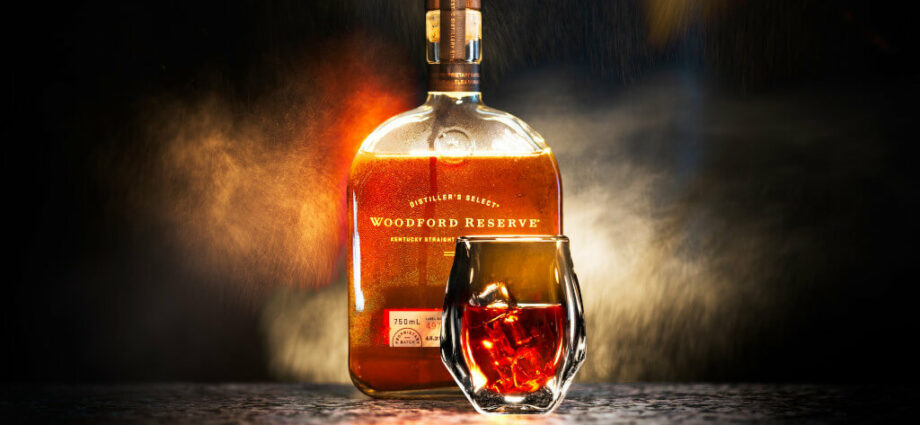Have you ever noticed the shiny medals on some whiskey labels while browsing the shelves of your local liquor store? Those medals are more than just decorative elements. They signify recognition, but does this mean the whisky is truly exceptional?
The Medal System Demystified
When you see a whiskey sporting a ‘Gold’, ‘Silver’, or ‘Bronze’ medal, it’s indicative of its performance in specific competitions. Think of it as a recognition system, but not necessarily a ranking. Unlike the Olympics, where gold means first place, in the world of whiskey, a gold medal can simply represent a high standard within a particular category.

Whiskey competitions generally group entries by age, and style – such as blend, single malt, single grain, peated, unpeated – and sometimes even by price range. This ensures that an eight-year-old whiskey from Kentucky isn’t directly competing against a 25-year-old single malt from Scotland. The goal is to assess each whiskey on its merits, in a context that makes sense.
Behind the Scenes of Judging
So, how do these medals get awarded? Competitions enlist seasoned whiskey experts to blind-taste each submission. These judges evaluate various factors, including balance, complexity, and any unique characteristics. After tasting, each whiskey is scored. The average score then determines if the whiskey deserves a medal, and which one.
However, the road to receiving a medal isn’t as straightforward as you might think. Companies pay to enter their whiskies into these competitions. But, contrary to what you might assume, payment doesn’t guarantee any awards. The whiskey’s quality must still shine through genuinely.
Understanding Whisky Competition Requirements and Judging Criteria
1. Entry Prerequisites:
- Product Authenticity: Ensure the whiskey is an original product of the distillery entering the competition.
- Payment: Competitions usually have an entry fee. Ensure it’s paid within the stipulated timeline.
- Samples: Send the required number of unmarked samples by the competition deadline.
2. Categorization:
- Whiskies are classified by age, style (single malt, blended, grain), region (like Speyside, Highlands), and sometimes by price range. Ensure your whiskey is entered in the correct category to be judged against similar products.
3. Judging Criteria:
- Balance: How harmoniously the flavors and aromas interact. A whiskey that’s too overpowering in one aspect, like smokiness, without complementing flavors can lose points.
- Complexity: The depth and range of flavors and aromas. Judges often look for multiple layers that evolve as they taste.
- Value for Money: Even if it’s not the best-tasting whiskey if it offers exceptional quality for its price, it can score higher in this criterion.
- Unique Characteristics: What sets the whiskey apart? It could be a unique ingredient, a maturation process, or even an unusual flavor profile.
- Consistency: Especially for brands that have entered the same product in previous years, maintaining the same quality batch after batch can earn points.
4. Awards:
- Understand that Gold doesn’t necessarily mean first place, nor does Silver denote second. Instead, these medals represent a scoring range that the whiskey achieved.
- Whiskies might not win a medal not because of poor quality but potentially due to non-participation or the brand’s choice to not publicize its awards.
5. Feedback:
- Some competitions provide feedback on entered whiskies. This is invaluable for distillers looking to refine their products.
A Pinch of Salt with Those Medals
Now, before you rush to make your next purchase solely based on these medals, there are a few things you should consider. Sometimes, insiders from the industry serve on judging panels. This has raised concern, with skeptics questioning the objectivity of such competitions. Remember, just because a whiskey lacks medals doesn’t mean it’s subpar. It might simply be that the brand chose not to enter any competitions or preferred not to flaunt its accolades.
Beyond the Medals
Wondering if a gold-medaled young whiskey from Ireland is superior to a bronze-winning aged Scotch? There’s no definitive answer.
5 Top Award-Winning Whiskies

- Yamazaki 18-Year-Old: Coming from Japan’s oldest malt whiskey distillery, this offering is a symphony of flavors from its diverse barrel aging. It has been honored numerous times, notably receiving the Gold at the International Spirits Challenge.
- Redbreast 12-Year-Old: This Irish whiskey, often praised for its rich, spicy, and sherry-infused profile, bagged the “Irish Whiskey of the Year” title at the 2019 Irish Whiskey Awards.
- Glenfiddich 21-Year-Old Reserva Rum Cask Finish: A distinguished member of the renowned Glenfiddich family, this Scottish whiskey is matured in rum casks, lending it a unique sweetness. Its excellence was acknowledged when it clinched the Gold at the International Wine and Spirit Competition.
- Pappy Van Winkle’s Family Reserve 15-Year-Old: A gem from the USA, this bourbon is known for its rich, full-bodied profile. Its reputation precedes it, having been awarded Double Gold at the San Francisco World Spirits Competition.
- Lagavulin 16-Year-Old: An Islay single malt, it’s celebrated for its peaty character intertwined with a sweet sherry backdrop. Recognitions include a Gold medal at the San Francisco World Spirits Competition.
Just because a whiskey has a collection of medals doesn’t guarantee it’ll align with your palate. Taste is subjective. For instance, Ardbeg Uigeadail, an Islay single malt scotch, may have received numerous awards for its smoky complexity, but if you prefer a milder profile, this whiskey might not be your cup of tea.
FAQs on Whisky Competitions
Q: How are whiskies grouped in these competitions?
A: Whiskies are grouped by age, style, region, and sometimes by price range.
Q: What if my whisky doesn’t win a medal?
A: It doesn’t necessarily mean your whisky was subpar. The brand might have chosen not to participate or not publicize the award.
Q: Are all judges independent?
A: Not always. Some competitions have industry insiders on their panels, which has raised concerns about potential bias.
Instead of relying solely on medals, expand your whiskey discovery methods. Jump into reviews online, chat with fellow whiskey enthusiasts, or perhaps visit a whiskey bar to sample before investing in a bottle. Your palate is uniquely yours, and only through tasting can you truly identify the flavors and profiles you enjoy most.
While medals can be a useful guide, it’s essential to trust your instincts. Don’t hesitate to form your own opinions.

